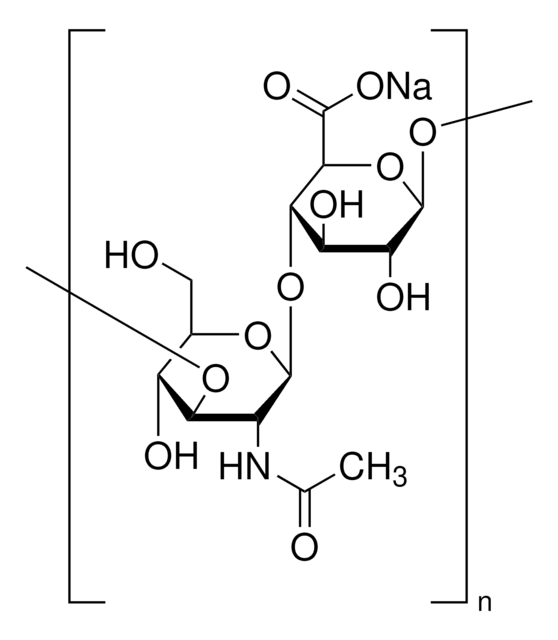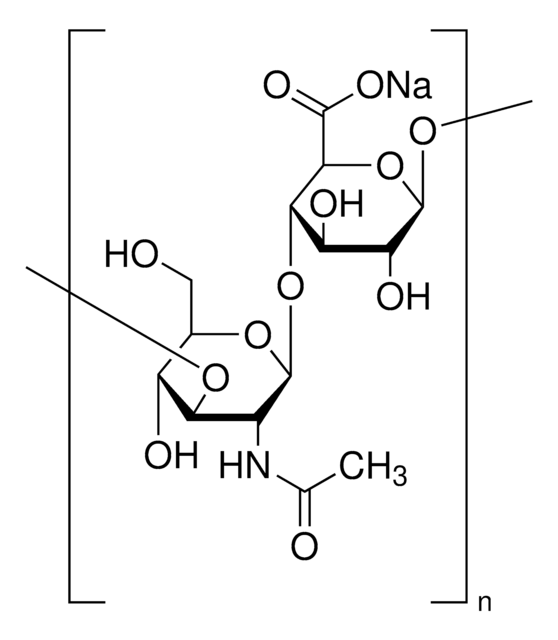75043
Hyaluronic acid sodium salt from Streptococcus equi
mol wt 130,000-150,000
Synonym(s):
Sodium hyaluronate
About This Item
Recommended Products
biological source
(Streptococcus equi)
Quality Level
form
powder
mol wt
130,000-150,000
color
white
solubility
water: ~5 g/L
suitability
conforms to structure for Infrared spectrum
shipped in
wet ice
storage temp.
−20°C
SMILES string
[Na+].N([C@H]1[C@@H](O[C@@H]([C@H]([C@@H]1O[C@@H]4O[C@@H]([C@H]([C@@H]([C@H]4O)O)O)C(=O)O)O)CO)O[C@@H]2[C@H](O[C@H]([C@@H]([C@H]2O)O)O[C@@H]3[C@H]([C@@H](O[C@@H]([C@H]3O)CO)O)NC(=O)C)C(=O)O)C(=O)C
InChI
1S/C28H44N2O23.Na/c1-5(33)29-9-18(11(35)7(3-31)47-25(9)46)49-28-17(41)15(39)20(22(53-28)24(44)45)51-26-10(30-6(2)34)19(12(36)8(4-32)48-26)50-27-16(40)13(37)14(38)21(52-27)23(42)43;/h7-22,25-28,31-32,35-41,46H,3-4H2,1-2H3,(H,29,33)(H,30,34)(H,42,43)(H,44,45);/q;+1/t7-,8-,9-,10-,11-,12-,13+,14+,15-,16-,17-,18-,19-,20+,21+,22+,25-,26+,27-,28-;/m1./s1
InChI key
YWIVKILSMZOHHF-QJZPQSOGSA-N
Looking for similar products? Visit Product Comparison Guide
Application
Other Notes
Storage Class Code
11 - Combustible Solids
WGK
WGK 2
Flash Point(F)
Not applicable
Flash Point(C)
Not applicable
Choose from one of the most recent versions:
Certificates of Analysis (COA)
Don't see the Right Version?
If you require a particular version, you can look up a specific certificate by the Lot or Batch number.
Already Own This Product?
Find documentation for the products that you have recently purchased in the Document Library.
Customers Also Viewed
Our team of scientists has experience in all areas of research including Life Science, Material Science, Chemical Synthesis, Chromatography, Analytical and many others.
Contact Technical Service



